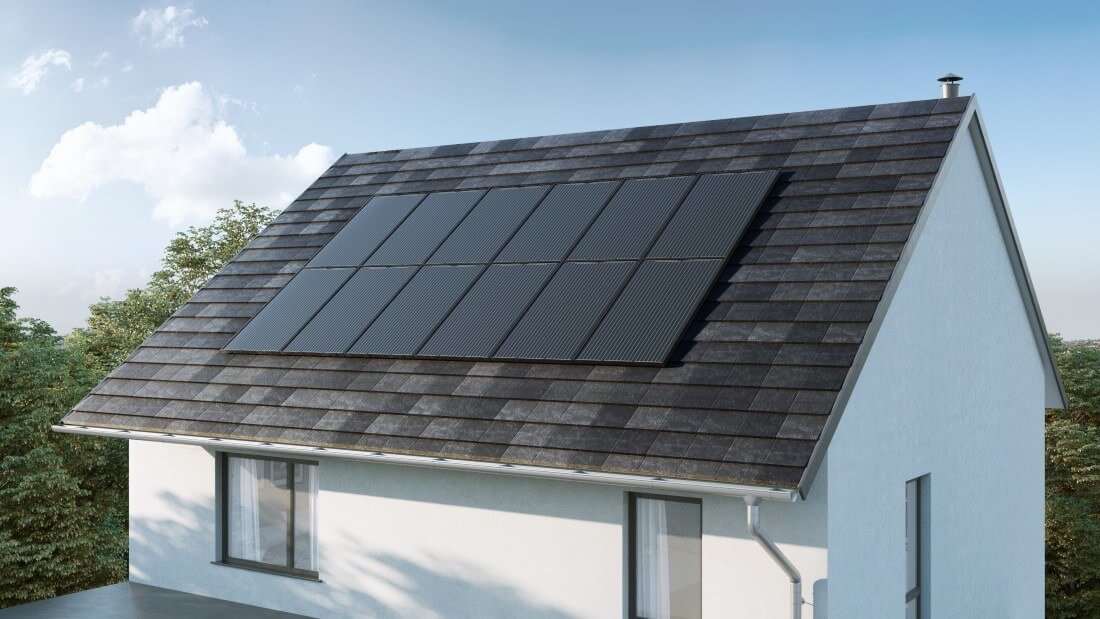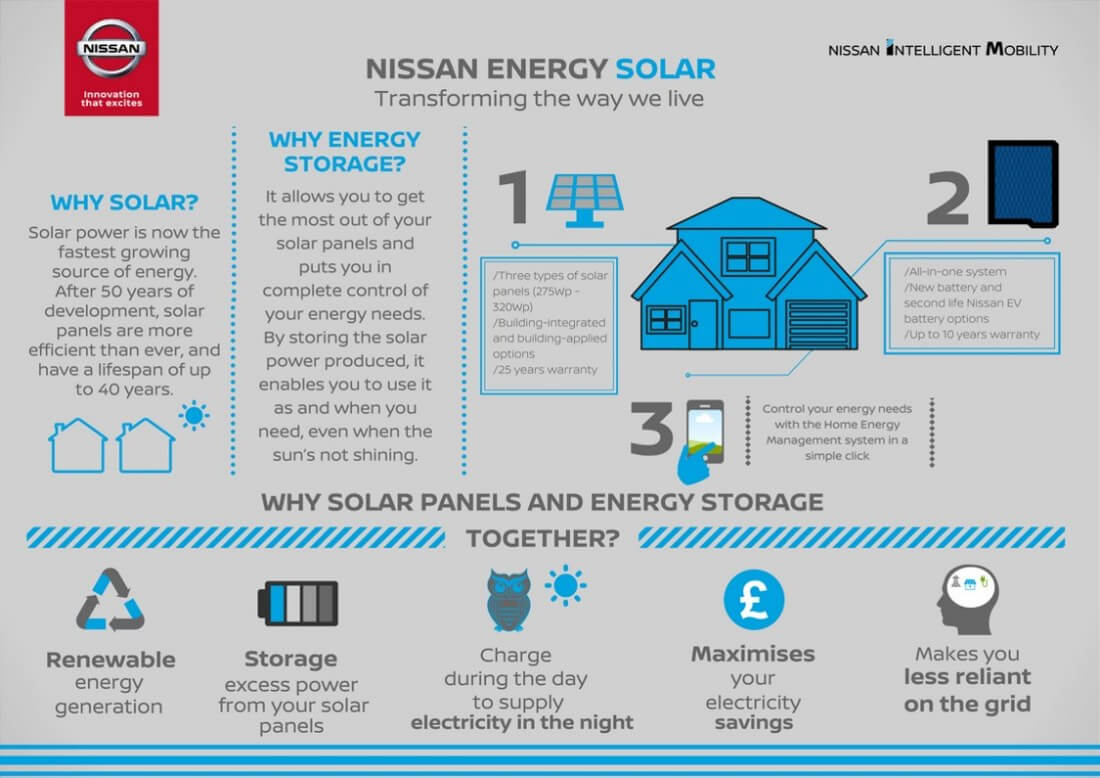
It seems Tesla might have some serious competition in the realm of solar energy if a recent announcement from Nissan's European division is anything to go by.
The carmaker today unveiled their all-new, all-in-one home energy solution dubbed "Nissan Energy Solar." The AIO system will combine the power generation capabilities of solar panels with sophisticated energy storage tech, allegedly allowing customers to save "up to 66%" on their monthly energy bills.
Nissan's AIO solar system comes with six solar panels, an "xStorage" battery, and Nissan's "Home Energy Management" system. Though prices will undoubtedly differ depending on your specific home's power needs, the full AIO solution will begin at £7,635.
Nissan's primary goal with their Energy Solar system seems to lie in advancing the use of sustainable energy, while simultaneously giving their customers increased independence from traditional electricity providers.

"Nissan Energy Solar is a complete system for home energy generation, management and storage," Nissan Europe's Gareth Dunsmore said in a statement. "It enables UK homeowners to make significant savings on their household electricity bills, and become champions of sustainability and green technology."
If you're interested in checking Nissan's Energy Solar system out for yourself, you might be out of luck. Nissan is only selling the system to UK residents for the time being, and manual installation is the only way to get your hands on it.
US residents who want to make the switch to solar might be better off waiting for Tesla's PowerWalls and solar panels to arrive at 800 Home Depot locations sometime in the future.
https://www.techspot.com/news/74686-nissan-takes-aim-tesla-their-new-all-one.html